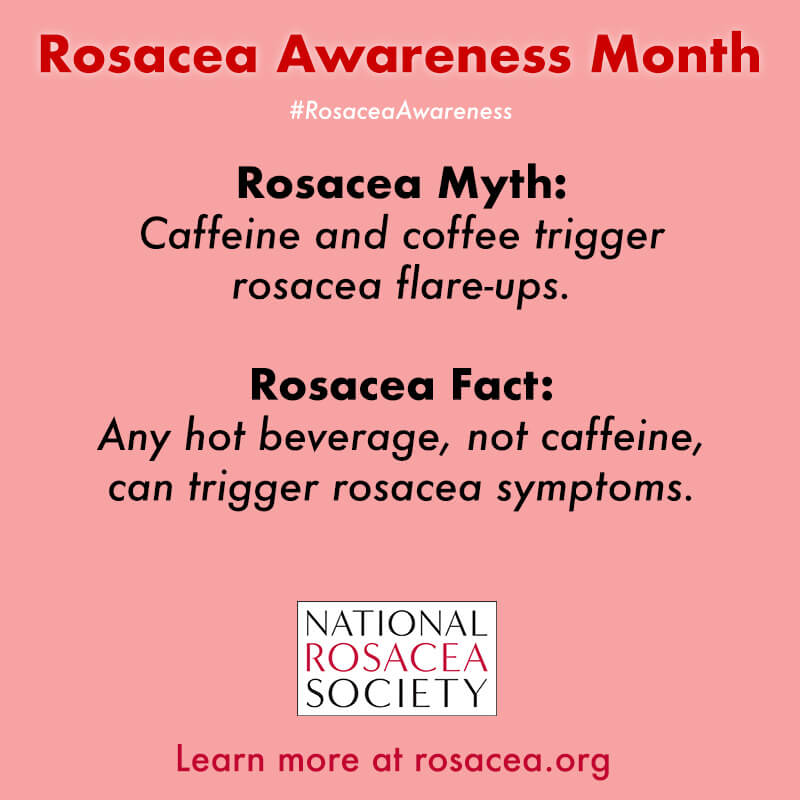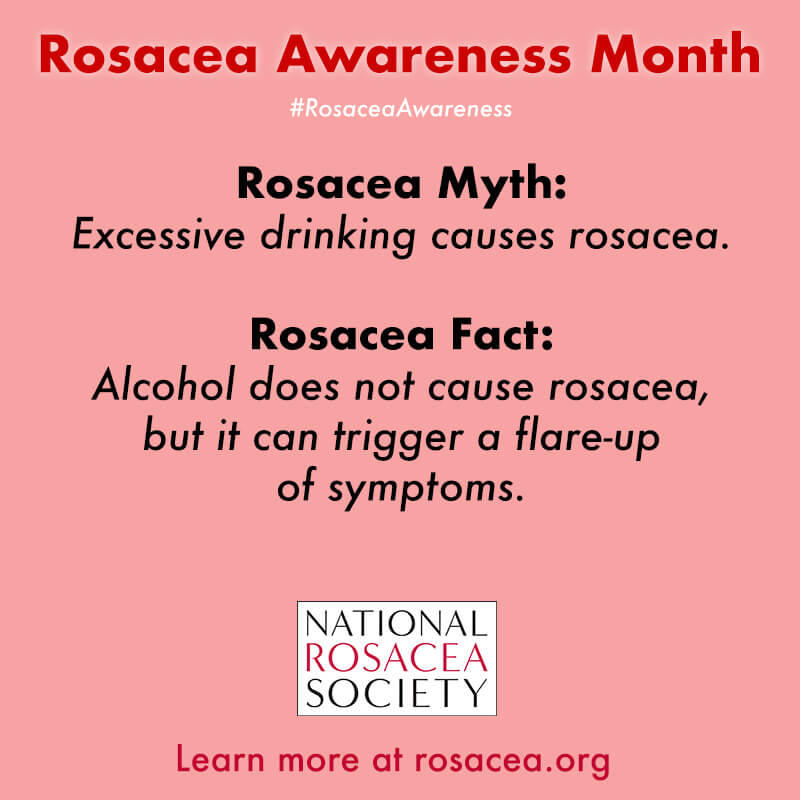“People sometimes wait to see a dermatologist until their rosacea becomes unbearable. Dermatologists encourage you to make an appointment long before this happens”.1
Umbrella
What may the Rosacea Umbrella include?
Depending on the Source (DotS) this Umbrella may include:
- Acne Rosacea
- Adult Acne
- Red Face
- Rosacea
Definition
What is rosacea?
DotS the definition of rosacea may vary. The (United States) National Institute of Arthritis and Musculoskeletal and Skin Diseases’ (NIAMS) definition is:
“Rosacea is a long-term inflammatory skin condition that causes reddened skin and a rash, usually on the nose and cheeks. It may also cause eye problems. The symptoms typically come and go, with many people reporting that certain factors, such as spending time in the sun or experiencing emotional stress, bring them on”.2
The (United States) National Rosacea Society’s definition is:
“Rosacea (pronounced “roh-ZAY-sha”) is a chronic but treatable condition that primarily affects the central face, and is often characterized by flare-ups and remissions”.3
First Signs
What are the first signs of rosacea?
In Rosacea: Check If You Have Rosacea the (United Kingdom) NHS elaborate on:
- Redness (blushing) across your nose, cheeks, forehead, chin, neck and chest that comes and goes, usually lasting for a few minutes each time – your face may also feel warm, hot or painful
- A burning or stinging feeling when using water or skincare products
The redness may be harder to see on brown or black skin”.4
Symptoms
What are the symptoms of rosacea?
In Rosacea: Overview, Symptoms & Causes – Symptoms of Rosacea the NIAMS elaborate on:
The symptoms of rosacea include:
- Facial redness…
- Rash…
- Visible blood vessels…
- Skin thickening…
- Eye irritation…”.5
Cause
What causes rosacea?
In Rosacea: Overview, Symptoms & Causes – Causes of Rosacea according to the NIAMS:
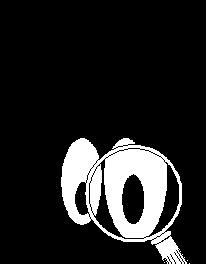 Triggers
Triggers
What are some rosacea triggers?
In Rosacea: Triggers the NHS elaborate on:
- Alcohol
- Spicy foods
- Hot drinks
- Sunlight
- Hot or cold temperatures
- Aerobic exercise, like running
- Being stressed”.7
In Factors That May Trigger Rosacea Flare-Ups and Rosacea Triggers Survey the (United States) National Rosacea Society include more factors of potential rosacea triggers.
Diary
 Is there a diary to use, to find and avoid personal rosacea triggers?
Is there a diary to use, to find and avoid personal rosacea triggers?
In Rosacea Diary Booklet: An Easy Way To Find and Avoid Your Personal Rosacea Triggers the National Rosacea Society explain how to use their diary.
Common or Not
How common is rosacea?
In Information for Patients: If You Have Rosacea, You’re Not Alone according to the National Rosacea Society
“An estimated 16 million Americans have rosacea, yet only a small fraction are being treated”.8
Cause
What causes rosacea?
In Rosacea: Causes the (United States) MedlinePlus note:
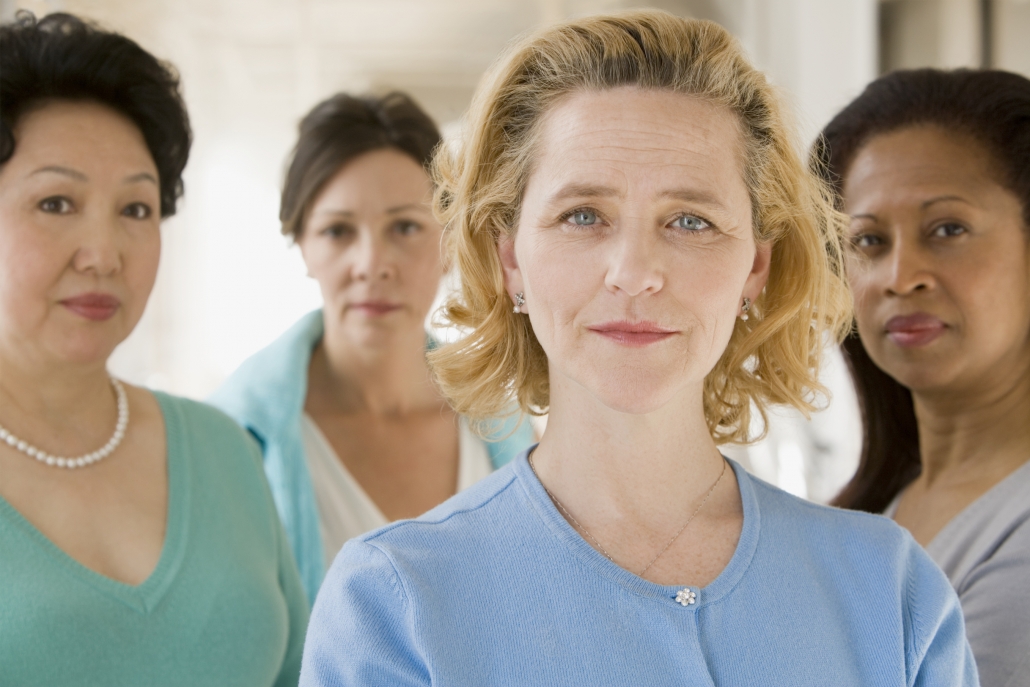 “The cause is not known. You may be more likely to have this if you are:
“The cause is not known. You may be more likely to have this if you are:
- Age 30 to 50
- Fair-skinned
- A woman”.9
The NIAMS explain:
- Middle-aged and older adults
- Women, but when men get it, it tends to be more severe
- People with fair skin, but it may be underdiagnosed in darker skinned people because dark skin can mask facial redness”.10
Hot Flushes
Is there an association between hot flushes and rosacea?
In Rosacea and Menopause: Hormonal Therapy, published February 2023, the author notes:
Treatment
How is rosacea treated?
In Rosacea: Diagnosis & Treatment – Treatment the (United States) Mayo Clinic explain:
How long you need treatment depends on the type of rosacea you have and how serious your symptoms are. Even if your skin calms with treatment, the symptoms often return”.12
In Rosacea: Treatment for Rosacea From A GP the NHS elaborate on:
A GP may suggest:
- Prescriptions for creams and gels you put on your skin
- Taking antibiotics for 6 to 16 weeks
A GP may refer you to a skin specialist (dermatologist) if treatments are not working”.13
Who is a GP?
DotS and/or DotC (Depending on the Country) a GP may be a qualified and registered general practitioner, a medical practitioner, a medical doctor or a doctor.
Hormone Therapy
Is hormone therapy useful for the treatment of postmenopausal women?
In Rosacea and Menopause: Hormonal Therapy the author notes:
Health Care Provider
What if I think I have rosacea?
If you think you have rosacea, it may be in your best interest to choose to talk to your health care provider about this.
In All About Rosacea: Signs & Symptoms and Treatment – What Causes Rosacea? the National Rosacea Society explain:
“Although the cause of rosacea remains unknown, researchers have now identified major elements of the disease process that may lead to significant advances in its treatment. Recent studies have shown that the facial redness is likely to be the start of an inflammatory continuum initiated by a combination of neurovascular dysregulation and the innate immune system. The role of the innate immune system in rosacea has been the focus of groundbreaking studies funded by the NRS, including the discovery of irregularities of key microbiological components known as cathelicidins. Further research has now demonstrated that a marked increase in mast cells, located at the interface between the nervous system and vascular system, is a common link in all major presentations of the disorder”.15
In Do You Have To Treat Rosacea? Worried Your Rosacea Is Not Serious Enough To Treat? the American Academy of Dermatology | Association encourage us to seek treatment early:
The earlier you start treatment, the easier rosacea is to manage”.16
Health Topics A-Z
Where may I find Health Topics A-Z related to Rosacea?
In Health Topics A-Z may find:
Links
Where may I find Links related to Rosacea?
Your Country may have Links similar to:
Links
This Links List to third party websites is neither comprehensive nor exhaustive. Inclusion on this Links List does not imply endorsement or recommendation. Non-inclusion on this Links List does not imply non-endorsement or non-recommendation. Third party websites are not under the control of Meno Martha International Menopause Directory. Third party websites may contain explicit medical images and/or sexual references. Please read Meno Martha International Menopause Directory’s Links Policy before proceeding to a Link. Please contact Webmaster if you experience a problem with a Link.New or Updated
- 6 Natural Ways To Find Relief From Rosacea [21 March 2024]
- 7 Rosacea Skin Care Tips Dermatologists Recommend [+ Video] [03 April 2024]
- Clinical Characteristics of Rosacea In Perimenopausal Women [14 January 2024]
- Consumer Video and Podcast Series: 2024 Consumer Videos and Podcasts – Preparing for Your Menopause Healthcare Visit
- Rosacea and Menopause
- Rosacea and Menopause: What’s the Link? [Podcast] [11 April 2023]
- 10 Reasons Your Face Is Red
- 6 Natural Ways To Find Relief From Rosacea
- 7 Rosacea Skin Care Tips Dermatologists Recommend [+ Video]
- Acne Rosacea Treatments: Cause and Cure
- Acne Rosacea Treatments: Rosacea Lifestyles
- Acne Rosacea Treatments: Rosacea Symptoms
- Acne Rosacea Treatments: Rosacea Treatment
- All About Rosacea
- American Academy of Dermatology | Association: Diseases and Treatments
- April Is Rosacea Awareness Month [United States]
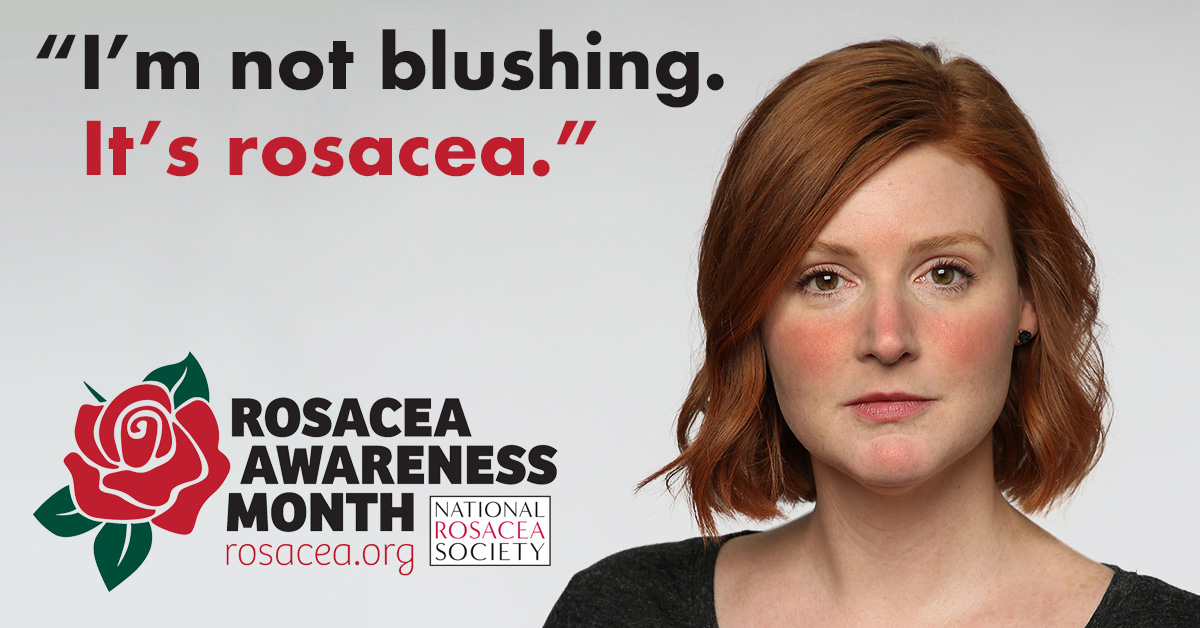
- Causes of Rosacea: Introduction
- Changingfaces.org.uk [Changing Faces, United Kingdom]
- Changingfaces.org.uk: Skin Camouflaging Services
- Clinical Characteristics of Rosacea In Perimenopausal Women
- Consumer Video and Podcast Series: 2024 Consumer Videos and Podcasts – Preparing for Your Menopause Healthcare Visit
- Coping With Rosacea – Managing Psychological and Social Aspects of Rosacea
- Do You Have To Treat Rosacea?
- Does Drinking Cause Rosacea?
- Does Rosacea Increase Your Risk of Having A Heart Attack or Stroke?
- Factors That May Trigger Rosacea Flare-Ups
- Frequently Asked Questions
- How To Prevent Rosacea Flare-Ups
- Information for Patients
- Information for Patients: if You Have Rosacea You Are Not Alone
- Internationalrosaceafoundation.org [International Rosacea Foundation]
- Is Rosacea Causing Your Red, Irritated Face?
- Is That Acne or Rosacea on Your Skin?
- Just Diagnosed With Rosacea? 8 Things You Should Know
- Know Your Rosacea Triggers
- Lasers and Lights: How To Well Do They Treat Rosacea?
- Living With Rosacea? How To Reduce Your Risk of Other Conditions
- Makeup for Rosacea
- Mayo Clinic Q and A: New Therapies Help Control Flushing Caused By Rosacea
- Menopause, Skin and Common Dermatoses. Part 2: Skin Disorders
- Ocular Rosacea
- Patients Need Patience: Give Rosacea Therapy Time
- People With Skin of Color Can Get Rosacea
- Recognizing Redness: A Patient Guide To the Most Common Sign of Rosacea
- Rhinophyma
- Rhinophyma
- Rosacea
- Rosacea
- Rosacea
- Rosacea
- Rosacea 1. About Rosacea
- Rosacea 2. Symptoms of Rosacea
- Rosacea 3. Causes of Rosacea
- Rosacea 4. Treating of Rosacea
- Rosacea 5. Preventing Rosacea
- Rosacea Diary Booklet: An Easy Way To Find and Avoid Your Personal Rosacea Triggers
- Rosacea Looks Different In Skin of Color
- Rosacea Resource Center
- Rosacea Skin Care & Cosmetics
- Rosacea Treatment
- Rosacea Treatment: Acne-Like Breakouts
- Rosacea Treatment: Can Light Therapy Reduce Symptoms?
- Rosacea Treatment: Eye Problems
- Rosacea Treatment: How To Treat the Redness
- Rosacea Treatment: Thickening Skin
- Rosacea Triggers Survey
- Rosacea [+ Video: Rosacea]
- Rosacea and Menopause
- Rosacea and Menopause: What’s the Link? [Podcast]
- Rosacea on Dark Skin
- Rosacea on White Skin
- Rosacea: Diagnosis & Treatment
- Rosacea: Diagnosis and Treatment
- Rosacea: Diagnosis, Treatment, and Steps To Take
- Rosacea: Insider Secrets
- Rosacea: Overview
- Rosacea: Overview, Symptoms & Causes
- Rosacea: Signs and Symptoms
- Rosacea: Symptoms & Causes
- Rosacea: Tips for Managing
- Rosacea: Who Gets and Causes
- Roseacea.org [National Rosacea Society, United States]
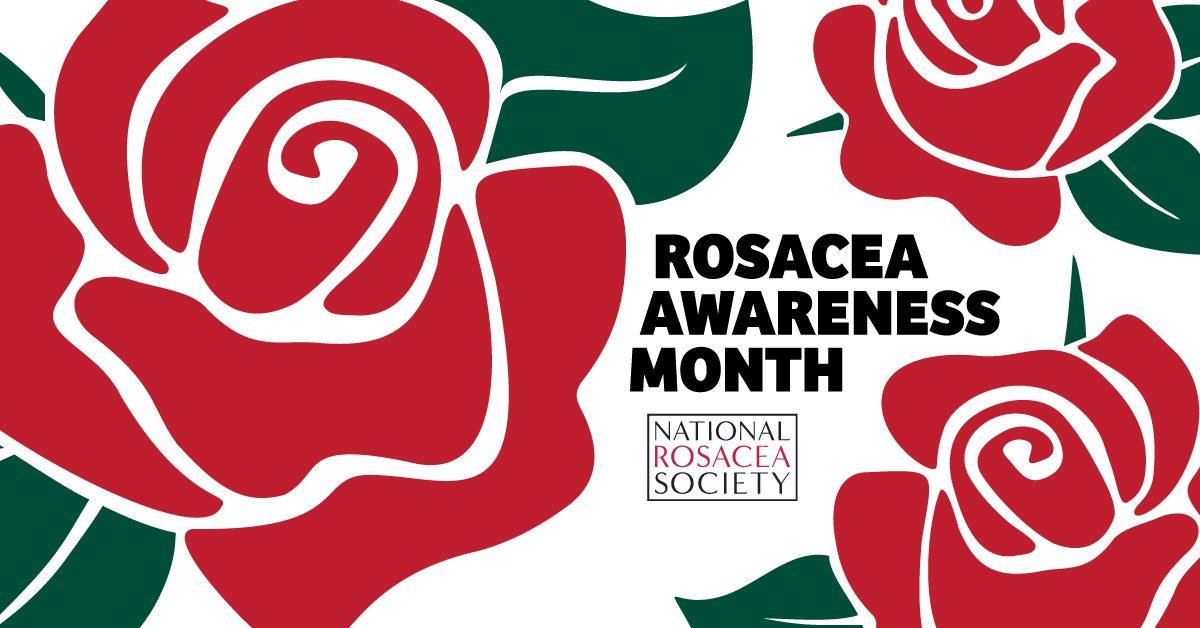
- Skin Care, Trigger Management Can Help Control Rosacea [Topics]
- Study Suggests Rosacea May Be More Complex In Women Over 45
- The Many Faces of Rosacea
- Tips From Patients and Doctors for Controlling Your Rosacea
- Tips To Help Manage Menopause Symptoms
- Triggers Could Be Causing Your Rosacea Flare-Ups
- What Is Rosacea?
- What’s the Relationship Between Rosacea and Menopause?
- When To See A Doctor About Rosacea
Sources
Where may I find the Sources quoted?
You may find the Sources quoted at:
Sources
- Do You Have To Treat Rosacea? Worried Your Rosacea Is Not Serious Enough To Treat? American Academy of Dermatology | Association https://www.aad.org/public/diseases/rosacea/treatment/necessary Accessed: 06 January 2025
- Rosacea: Overview, Symptoms & Causes – Overview of Rosacea. Last Reviewed: May 2024. National Institutes of Arthritis and Musculoskeletal and Skin Diseases https://www.niams.nih.gov/health-topics/rosacea Accessed: 06 January 2025
- All About Rosacea: Signs & Symptoms and Treatment. National Rosacea Society https://www.rosacea.org/patients/allaboutrosacea.php Accessed: 06 January 2025
- Rosacea: Check If You Have Rosacea. Page Last Reviewed: 17 March 2023. NHS https://www.nhs.uk/conditions/rosacea/symptoms/ Accessed: 06 January 2025
- Rosacea: Overview, Symptoms & Causes – Symptoms of Rosacea. Last Reviewed: May 2024. National Institutes of Arthritis and Musculoskeletal and Skin Diseases https://www.niams.nih.gov/health-topics/rosacea#tab-symptoms Accessed: 06 January 2025
- Rosacea: Overview, Symptoms & Causes – Causes of Rosacea. Last Reviewed: May 2024. National Institutes of Arthritis and Musculoskeletal and Skin Diseases https://www.niams.nih.gov/health-topics/rosacea#tab-causes Accessed: 06 January 2025
- Rosacea: Triggers. Page Last Reviewed: 17 March 2023. NHS https://www.nhs.uk/conditions/rosacea/symptoms/ Accessed: 06 January 2025
- Information for Patients: If You Have Rosacea, You’re Not Alone. National Rosacea Society https://www.rosacea.org/patients/index.php Accessed: 06 January 2025
- Rosacea: Causes. Review Date: 08 July 2023. MedlinePlus https://medlineplus.gov/ency/article/000879.htm Accessed: 06 January 2025
- Rosacea: Overview, Symptoms & Causes – Who Gets Rosacea? Last Reviewed: May 2024. National Institutes of Arthritis and Musculoskeletal and Skin Diseases https://www.niams.nih.gov/health-topics/rosacea#tab-risk Accessed: 06 January 2025
- Rosacea and Menopause: Hormonal Therapy. Rajab, F. 15 February 2023 https://www.dermatologytimes.com/view/rosacea-and-menopause Accessed: 06 January 2025
- Rosacea: Symptoms & Causes – Overview. 17 October 2023. Mayo Clinic https://www.mayoclinic.org/diseases-conditions/rosacea/symptoms-causes/syc-20353815 Accessed: 06 January 2025
- Rosacea: Treatment for Rosacea From A GP. Page Last Reviewed: 17 March 2023. NHS https://www.nhs.uk/conditions/rosacea/causes/#triggers-of-rosacea Accessed: 06 January 2025
- Rosacea and Menopause: Hormonal Therapy. Rajab, F. 15 February 2023 https://www.dermatologytimes.com/view/rosacea-and-menopause Accessed: 06 January 2025
- All About Rosacea: Signs & Symptoms and Treatment – What Causes Rosacea? National Rosacea Society https://www.rosacea.org/patients/allaboutrosacea.php Accessed: 06 January 2025
- Do You Have To Treat Rosacea? Worried Your Rosacea Is Not Serious Enough To Treat? American Academy of Dermatology | Association https://www.aad.org/public/diseases/rosacea/treatment/necessary Accessed: 06 January 2025


